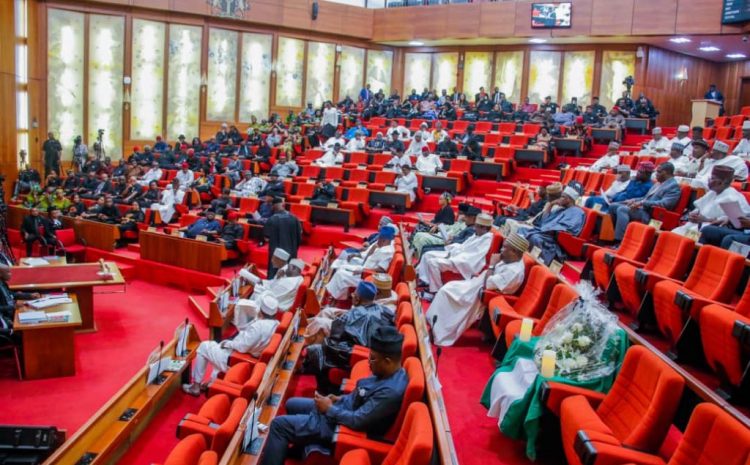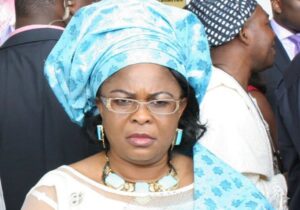Senate laments lack of functionality of Port Harcourt refinery despite $1.5bn expenditure
The Senate has raised questions over the $1.5bn approved in 2021 for the Port Harcourt Refinery Turn-Around Maintenance with little or no result.
The upper chamber lamented that it is “unfair and wrong to treat government businesses or public companies as an orphan while private businesses were flourishing and thriving.”
The Senate Leader and Chairman, Senate ad-hoc Committee to investigate the alleged economic sabotage in the Nigerian Petroleum Industry, Opeyemi Bamidele, raised the questions at a session with stakeholders in the industry at the National Assembly Complex, Abuja on Wednesday.
The session was attended by the Minister of Finance and Coordinating Minister of the Economy, Mr. Wale Edun; Group Managing Director, Nigerian National Petroleum Corporation Limited, Mele Kyari; Chief Executive, Nigerian Upstream Petroleum Regulatory Commission, Mr. Gbenga Komolafe and the Chief Executive Office, Nigerian Midstream and Downstream Petroleum Regulatory Authority, Mr. Farouk Ahmed, among others.
The Federal Executive Council had approved the plan by the Ministry of Petroleum Resources to rehabilitate and turn around the Port Harcourt Refinery with $1.5bn under the administration of former President Muhammadu Buhari.
Despite the huge investment, the government-owned refinery is yet to function effectively, a situation that compelled the country to depend almost entirely on the importation of petroleum products.
At the session with stakeholders on Wednesday, Bamidele expressed concerns over the dysfunctionality of the government-owned refineries despite investments to carry out turn-around maintenance.
Bamidele observed that the country “is undergoing a truly challenging period,” pointing out that the distribution and supply of refined petroleum products “has been irregular and problematic in the recent history of our fatherland.
“The long queues at filling stations are obviously a testament to this challenge. A situation, whereby we now depend almost entirely on the importation of these products, even when we daily supply the global oil market. No fewer than two per cent of its crude oil requirements are, to say the least, highly worrisome.
“We also have at hand a grievous issue of national concern that directly borders on the importation of hazardous petroleum products and dumping of substandard diesel into the country.”
Under different administrations since 1999, Bamidele observed that the Federal Government “has invested billions of dollars to maintain and turn around the state-owned refineries in Kaduna, Port Harcourt and Warri. But the refineries are not functioning.
“In 2021, specifically, the Federal Executive Council approved $1.5bn for the turn-around maintenance of the Port Harcourt Refinery. Yet, this investment has not yielded significant returns.
“For us, in the Senate, we believe it is unfair and unpatriotic to treat government businesses or public corporations as an orphan while private businesses are flourishing and thriving.”
To permanently nip these challenges in the bud, Bamidele disclosed the Senate’s plan to jointly investigate diverse allegations of economic sabotage in the petroleum industry along with the House of Representatives.
He noted that there would be no room for grandstanding during the investigative hearing, promising that the committee would carry out its mandate fairly and impartially.
While insisting that nobody will be untouchable, Bamidele said the task of ridding the petroleum industry of malfeasance “is urgent and must be carried out in the spirit of nationalism and patriotism. We are ready to carry it out with all senses of honour and responsibility.
“We are also taking it seriously to address fundamental issues that pose grave threats to our economic prosperity, fiscal stability and public health as a Federation. In line with our mandate, we will definitely unravel factors and forces aiding sabotage in our petroleum industry.
“From our findings, we will craft a legislative framework that will entrench global best practices in the industry, open it up for more investments, especially in the midstream and downstream sectors and end vicious regimes of subterfuge in the petroleum industry.”










More Stories
Tinubu considers Fani-Kayode, others for ambassadorial appointments
NBA intervenes, as detention of 15 domestic aides accused of theft from ex-First Lady Patience Jonathan, lingers
Church elder reveals how Adeboye banned Iluyomade from stepping into RCCG, called members who defected demons